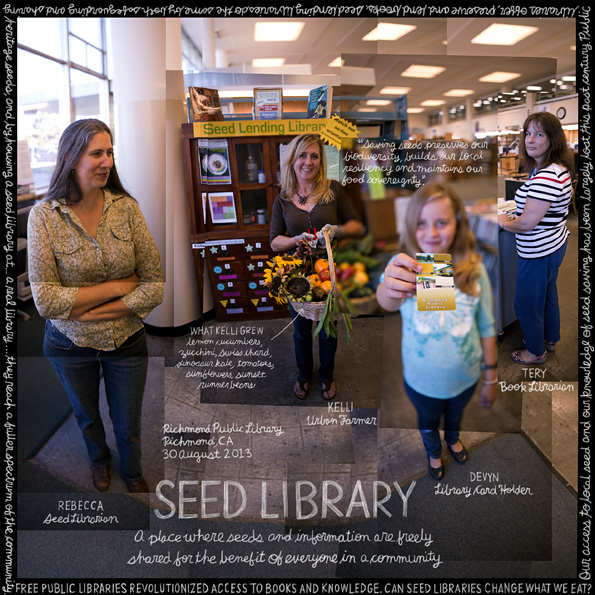“Everything begins with seeds. If seeds stay in farmer’s hands, agriculture remains viable. Diversity is the source of everything that life is about, and that’s why seed sovereignty is so vital. A sustainable food system is about working with the earth and working with diversity. It is about growing food for food and not for commodity.”
—Dr. Vandana Shiva

#Seeds contain the agricultural heritage of a community. Saving them matters. @deliciousliving #foodlist
Seeds contain the agricultural heritage of a community, passing it from one generation to the next.
In the last century nearly 75 percent of U.S. agricultural crops have disappeared. Traditionally, farmers would save and share seeds with each other, yet today most seed production is controlled by just a few companies. There’s a fundamental lack of awareness about seeds and saving them, which can be attributed to our contemporary shift away from small-scale farming operations to larger, monoculture farming set-ups.
With this transition, there has been a dramatic decline in seed biodiversity. Thankfully, more and more food producers today are making decisions to improve the quality and diversity of the crops they grow in an effort to build healthier soil, healthier bodies, and a healthier planet.
Title: Seed Library
Location: Richmond Public Library, Richmond, CA
Featuring: Terry the Book Librarian, Devyn the Library Card Holder, Kelli the Urban Farmer, and Rebecca the Seed Librarian
Kelly tells us, “saving seeds preserves our biodiversity, builds our local resiliency and maintains our food sovereignty.” A seed library is a place where seeds and information are freely shared for the benefit of everyone in the community.
Free public libraries revolutionized access to books and knowledge. Can seed libraries change what we eat? Our access to local seeds and our knowledge of seed saving has been largely lost this past century. Public libraries offer, preserve and lend books. Seed lending libraries do the same by both safeguarding and sharing heritage seeds, and by housing a seed library at a real library, you can reach a fuller spectrum of the community.”
Video: "Carolina Gold" by The Perennial Plate
The Perennial Plate connects with seed collector and chef Sean Brock. Inspired by Glenn Roberts of Anson Mills, Brock embraces the agricultural heritage preserved in the local, landrace seeds. The Perennial Plate also ventures into the fields with Roberts to continue the conversation of landrace crops and their significance.
Three things you can do now
- Learn what fruits and vegetables grow well in your area, and support local farmers who save seed and cultivate heirloom varieties.
- Grow your own fruits and vegetables. When selecting seeds, choose heirloom, open-pollinated, non-GMO seeds. Save and exchange seeds with your neighbors or at your local seed swap.
- Visit your local seed library or seed bank. Who knows what treasures you have yet to discover!

Where do you buy your seeds? Do you save your own seeds each year?
For the past three years, the Lexicon of Sustainability has sought out the foremost practitioners of sustainability in food and farming to gain their insights and experiences on this important subject. What began as a photography project to spread their knowledge has grown to include short films, study guides, traveling shows, a book, and a website where people can add their own terms to this ever-evolving lexicon. See more at www.lexiconofsustainability.com.
